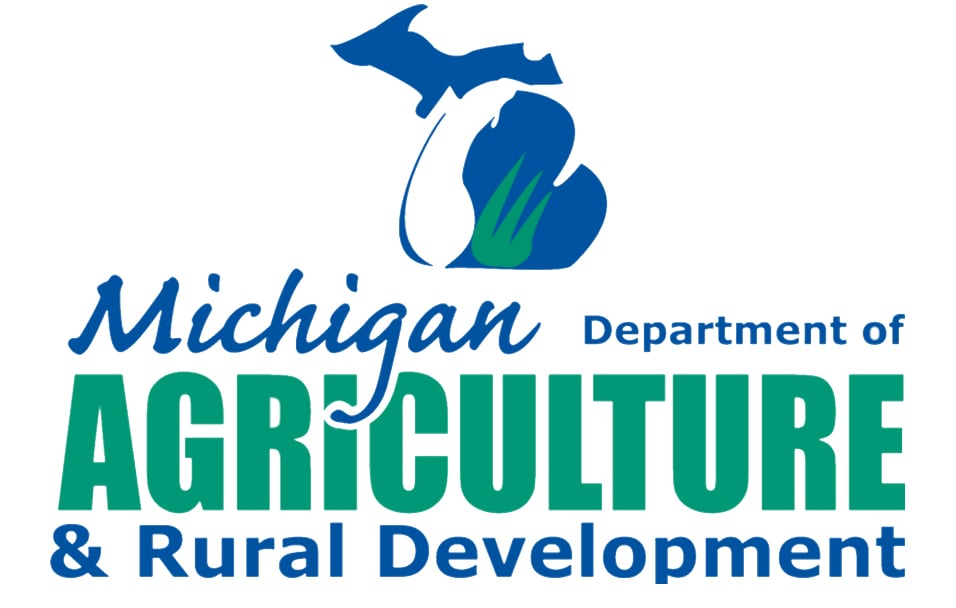Local collaboration receives MDARD funding to integrate gardens in educational and social service programs
February 6, 2020 | By Western U.P. Food Systems Council
A local multi-sector collaboration has received a rural development grant from the Michigan Department of Agriculture and Rural Development (MDARD) to build rural community capacity through public health programming and the creation of rural garden infrastructure at Horizons Alternative High School and Barbara Kettle Gundlach Shelter.  New culinary and therapeutic gardens will be collaboratively designed, built and integrated within existing curriculum and programming to support student and client skill development. The culinary garden will be incorporated into the current cooking classes at Horizons Alternative High School, contributing to the expansion of programming, supported by the Portage Health Foundation, to mitigate the impacts of trauma and food insecurity among students. The therapeutic and children’s sensory gardens at the Gundlach Shelter will create a healing space for gender-based violence survivors and provide safe greenspace for clients, visitors and resident children. Class integration within Michigan Technological University Department of Social Sciences’ Sustainability Science and Society degree program courses will provide additional project sustainability for both gardens.
New culinary and therapeutic gardens will be collaboratively designed, built and integrated within existing curriculum and programming to support student and client skill development. The culinary garden will be incorporated into the current cooking classes at Horizons Alternative High School, contributing to the expansion of programming, supported by the Portage Health Foundation, to mitigate the impacts of trauma and food insecurity among students. The therapeutic and children’s sensory gardens at the Gundlach Shelter will create a healing space for gender-based violence survivors and provide safe greenspace for clients, visitors and resident children. Class integration within Michigan Technological University Department of Social Sciences’ Sustainability Science and Society degree program courses will provide additional project sustainability for both gardens.
“We are very excited and thankful for this opportunity that has been provided for our students,” said Joel Asiala, Principal at Horizons Alternative High School. “Our students will benefit greatly from this program as they will learn culinary and life skills that will help them now and for many years to come.”
The project will benefit an estimated 200 Gundlach Shelter residential clients, 78 Horizons High School students, and 40 Michigan Tech undergraduates in its first year through the integration of the garden development within therapeutic programming and course curricula.
“We are very grateful to be included in this grant,” said Mary Niemela, Director of the Barbara Kettle Gundlach Shelter. “Providing a garden space for our clients can be beneficial to their emotional well-being from being victimized. If there are children involved, gardening can help them heal in a peaceful setting. It won't be just the planting of flowers and the picking of weeds; it will be the collaborative effort of working along-side others in similar situations. Also, in a pleasant environment and maybe learning a new skill. We look forward to working as part of the team to implement this project.”
The 18-month project will be administered by Rachael Pressley, Assistant Regional Planner at the Western U.P. Planning & Development Region. Dr. Michelle Seguin, Director of Community Health at Portage Health Foundation, will provide medical oversight of project implementation and assist Dr. Angie Carter, MTU Department of Social Sciences, in research analysis and evaluation. Abbey Palmer, educator with MSU Extension’s Upper Peninsula Research and Extension Center in Chatham, will provide garden consulting services and training. Michigan Tech’s Department of Social Sciences students taught and advised by Dr. Carter will assist with the facilitation of focus groups and partner interviews to guide project implementation and evaluation.
Upon project conclusion, the team will share case studies with the public to inform models for garden integration within other educational and social service organizations or multi-sector collaborations. Reports will be posted to the Western U.P. Food Systems Council’s and collaborators’ websites.
